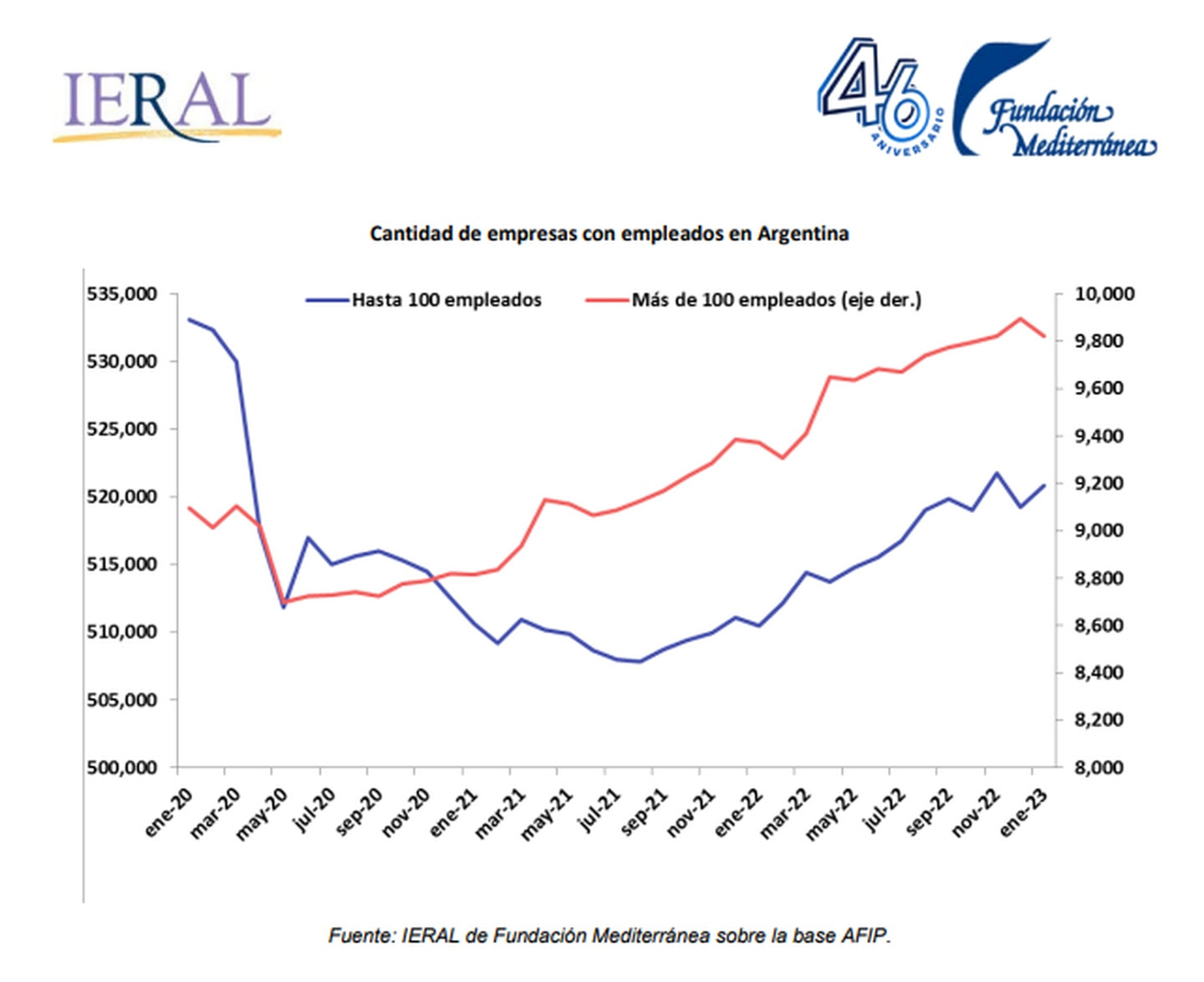By Tomás Carrió
The Government of Alberto Fernández and Cristina Kirchner will leave 12,000 fewer businesses in Argentina.
With less than 200 days before the end of the term of the current government coalition, a report by IERAL – Fundación Mediterránea showed that, in the first three years of the Frente de Todos, the country lost an average of 80 companies per week.
According to the report based on AFIP data, the current Government started its administration with 533,000 MSMEs.

But in just three years, until January 2023, it accumulated a loss of 12,200 companies of that size.
As a result of the pandemic, recalls the study signed by economist and researcher Marcos Cohen Arazi, during the first year, there was a decrease of 22,000 MSMEs, of which less than half recovered partially.
But the number of single taxpayers was hardly affected by the pandemic and grew strongly: there were 270,000 new registrations since 2020, implying an increase of 1,700 single taxpayers per week.
The study also states that “the creation/destruction of companies was not even among provinces in the last years, and neither was the resulting business density at present”.
At a national level, it details that there are 11 MSMEs per thousand inhabitants, but there are several countries in one: Formosa and Santiago del Estero have 4 and 5 per thousand inhabitants, while Córdoba and Santa Fe have 13 and 14, respectively.
HOW MANY COMPANIES HAVE BEEN LOST SINCE 2020
During the first 12 months of the Frente de Todos government, the study verified a reduction of 22,500 companies.
The year, marked by the pandemic’s beginning, “was tremendously recessive, and with the recovery of the following years, it was possible to recover only 45% of the lost companies”, said the IERAL report.
Thus, in the first three years of this administration, the balance shows a reduction of 12,200 companies, equivalent to 80 companies less for each week elapsed.
The situation differs significantly for larger companies, which had a much smaller decrease in the pandemic and are fully recovered.
It is not enough to compensate for the situation of MSMEs since the number of large companies grew by barely 700 in these last three years.

MICRO-ENTERPRISES OR EMPLOYMENT?
At the same time, the number of single taxpayers went from 1.63 to 1.9 million, which implies that 270,000 new enterprises or self-employment were created in the simplified regime.
This implies that in the first three years of the current Government, more than 1,700 single taxpayers were registered per week.
However, the IERAL study reminds us that the tool of the Monotax, or simplified regime for small taxpayers, is considered very important to facilitate the formal opening of new small-scale businesses because it significantly reduces compliance costs.
According to the report, it is possible to notice a very accelerated evolution in the number of single taxpayers who identify themselves as independent workers (not including those who are also employees in a dependent relationship), which grew at a rate of more than 5% per year in the last three years.
This group of taxpayers grew three times the formal private employment rate in the period.
Given this evidence, the study explained that “possibly, part of these enterprises correspond to registered salaried jobs that were not created, either because there were no occupational opportunities as salaried workers, or because they were not created through formal channels (employment as employees”.
For all these reasons, they considered that “this growth probably tells us more about the pending labor reform than about a remarkable entrepreneurial boom, although there are probably both”.
With information from Bloomberg
News Argentina, English news Argentina, Argentine economy

